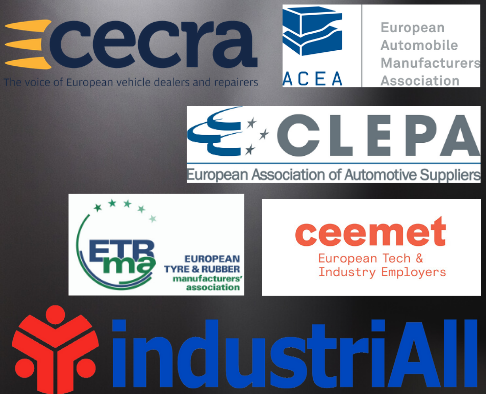Saving jobs while reducing emissions: IndustriAll Europe, Ceemet, ACEA, CLEPA, CECRA and ETRMA call for an ambitious recovery plan for the automotive sector
For many decades, the European automotive sector has been one of the key pillars of the economic and social welfare of Europe. Indirectly, the sector provides employment to 13,8 million workers. The European assembly plants still produce 1 in every 4 cars worldwide. The sector is highly innovative and accounts for 20% of industrial research funding in Europe. Europe’s automotive sector has become a global leader with a strong export orientation. It is a stronghold of European industry and a driver for jobs and economic growth across Europe. As a result of the substantial economic interlinkages with other sectors along the value chain, its importance for employment and growth for the whole economy is clear.
COVID-19 provoked an unprecedented crisis in the sector with an effective standstill of car production and distribution in Europe for several weeks. Sales came to a halt, investments have plummeted and the market introduction of new clean models has been postponed. At the same time, post-pandemic work organisation is increasing production costs.
The economic and social impact of the COVID-19 crisis on the automotive sector is particularly severe. Workers, although supported by short-time work arrangements, have seen their incomes reduced, and companies are facing cash drains as their revenues have disappeared. Currently, there is little visibility on what the future holds. If this situation persists, the sector risks a meltdown with large-scale bankruptcies and restructuring.
During the financial crisis (2008-13), the automotive sector lost 440.000 jobs (in car production and the aftermarket). If no measures are taken, this number risks being dwarfed by the current recession which may be much deeper.
Read the joint press release at this link
